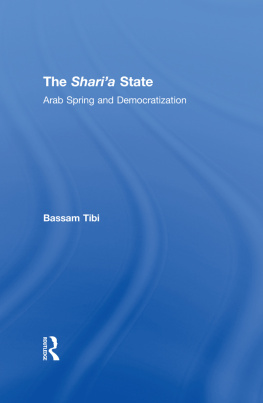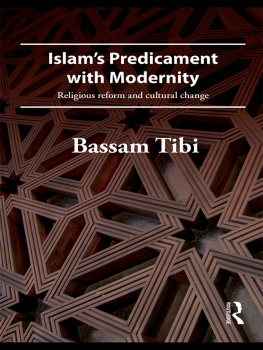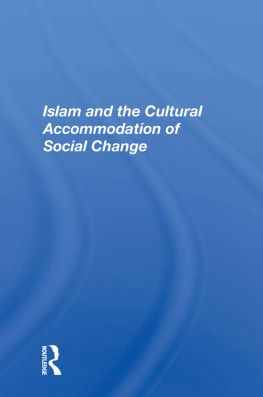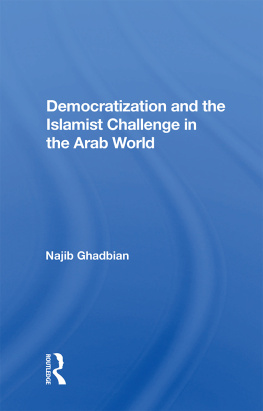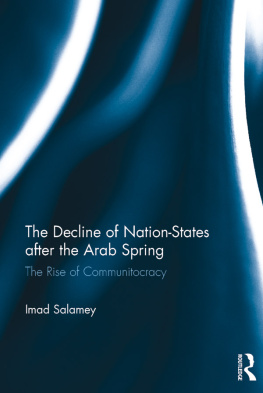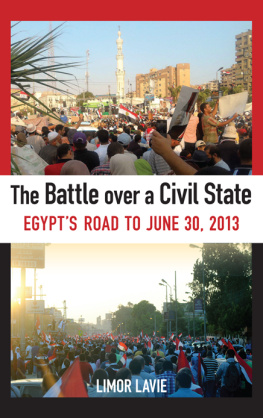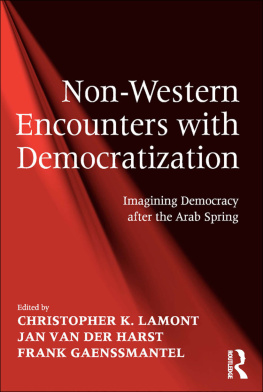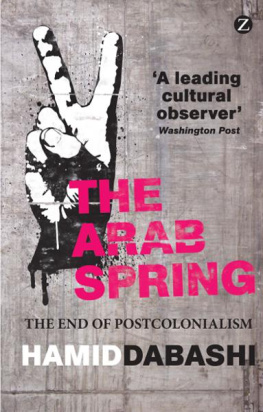TheShariaState
Set against the backdrop of the Arab Spring, The Sharia State examines the Islamist concept of political order. This order is based on a new interpretation of sharia and has been dubbed the Islamic state by Islamists. The concept of the Islamic state has been elevated to a political agenda, and it is this agenda that is examined here.
In contrast to the prevailing view which sees the Arab Spring as a revolution, this book argues that the phenomenon has been neither a spring, nor a revolution. The term Arab Spring connotes a just rebellion that led to toppling dictators and authoritarian rulers, yet in The Sharia State, Bassam Tibi challenges the unchecked assumption that the seizure of leadership by Islamists is a part of the democratization of the Middle East.
Providing a new perspective on the relationship between the Arab Spring and democratization, this book is an essential read for students and scholars of Middle Eastern Studies, Islamic Studies and Politics.
Bassam Tibi is a Professor Emeritus of International Relations. Between 1973 and 2009 he taught at the University of Gttingen, and he was A. D. White Professor-at-Large at Cornell University until 2010. Between 1982 and 2000 Professor Tibi was, in parallel to his appointment at Gttingen, at Harvard University in a variety of affiliations, the latest of which was as the Bosch Fellow of Harvard. His work has been translated into 16 languages, and he has published a great number of books including Islamism and Islam (Yale University Press, 2012), Islams Predicament with Modernity (Routledge, 2009) and Islam, World Politics and Europe (Routledge, 2008). In 1995 the president of Germany, Roman Herzog, presented him with the Bundesverdienstkreuz, Germanys highest federal decoration, for his bridging between Islam and the West.
TheShariaState
Arab Spring and Democratization
Bassam Tibi
First published 2013
by Routledge
2 Park Square, Milton Park, Abingdon, Oxon OX14 4RN
Simultaneously published in the USA and Canada
by Routledge
711 Third Avenue, New York, NY 10017
Routledge is an imprint of the Taylor & Francis Group, an informa business
2013 Bassam Tibi
The right of Bassam Tibi to be identified as author of this work has been asserted by him in accordance with sections 77 and 78 of the Copyright, Designs and Patents Act 1988.
All rights reserved. No part of this book may be reprinted or reproduced or utilized in any form or by any electronic, mechanical, or other means, now known or hereafter invented, including photocopying and recording, or in any information storage or retrieval system, without permission in writing from the publishers.
Trademark notice: Product or corporate names may be trademarks or registered trademarks, and are used only for identification and explanation without intent to infringe.
British Library Cataloguing in Publication Data
A catalogue record for this book is available from the British Library
Library of Congress Cataloging in Publication Data
Tibi, Bassam.
The Sharia state : Arab Spring and democratization / Bassam Tibi.
p. cm.
Includes bibliographical references and index.
1. Islam and stateArab countries. 2. Arab Spring, 2010
3. Islamic lawPolitical aspects. 4. DemocracyArab countries. I. Title.
BP173.6.T53 2013
320.55'709174927dc23
2012039844
ISBN: 9780415662161 (hbk)
ISBN: 9780415662178 (pbk)
ISBN: 9780203385555 (ebk)
Contents
Finally, a miracle happened at the beginning of 2011 in the Arab world, when a rebellion occurred toppling a series of ruling autocrats. The Middle East and North Africa (MENA) region seemed to join post-bipolar world history and its drive toward a global democratization. In the West two terms were generally indiscriminately used by scholars, journalists and Western politicians alike to dub the just and long overdue uprising in the Arab core of Islamic civilization: spring and revolution.
Two years after this uprising there seems to have been neither a spring nor a revolution. Throughout the six chapters of the present book I deplore the lack of accuracy in the use of these terms. Nonetheless and simply for convenience I do use the term Arab Spring, as a technical term for describing the uprising or rebellion of 20112012. The uprising resulted from the endless exasperations the Arab people had to endure for decades under ruthless dictatorship. The core questions this book poses are: Will the new regimes fulfil the needs that generated the uprising? Will there be a redeeming of the promise of an Arab Spring to bring freedom and prosperity? Will this spring deliver what the name spring promises? Will there be a genuine democratization (let us not fool ourselves: democracy is much more than just elections) after all of these years of suffering? Will the exasperation of Arab people come to an end? These questions compelled me to write this book and they determine the scope of the present inquiry.
Among the slogans that spread in the aftermath of the breakdown of communism and after the end of the EastWest conflict (post-bipolarity) was the formula of a third wave of democratization. Notions such as global democracy and the globalization of civil society followed and became promptly established in the public debate. Honest and more realistic students of the MENA region reserved judgement or simply expressed caution and scepticism about what they saw as the naive optimism of some opinion leaders. The views of scholars of the prevailing narrative were not supported by facts on the ground. Underlying the sceptical attitude is the fact that Arab-Islamic societies have not joined yet the global trend of democratization. Therefore the MENA region seemed to stand outside global history. Will the unexpected rebellion in the MENA counties, dubbed the Arab Spring, bring a real wind of change and make a difference? The uprising was an indication of a sea change, and it entailed a promise. But what kind of sea change was it, and what has been the outcome?
The core beneficiaries of the Arab Spring are the Islamist movements, not the people who took to the streets in rebellion. Islamists were the best organized opposition in the MENA region. The Arab Spring was not of their making, but they were in a position to incrementally take over and be in charge of all affairs and at all levels. Their professed plan for change is based on an envisioned replacement of the secular order of the sovereign nation-state by a nizam islami/Islamic system based on what they believe to be sharia, which is not the traditional one. The question that arises in this context is: Will this drive lead to democratization? I wrote this book to provide an answer to this question. I felt this to be a duty, for reasons that I will elaborate upon.
In the past decades I have been fortunate to acquire a constituency of readers of my books. Those who consulted my most recent book, Islamism and Islam, published in 2012 by Yale University Press, are aware of my decision to leave the stage after a rich 40 years of activity. Hence my decision, expressed in that book, to view it as my final one. In of the present book I shall explain and provide a justification for the reconsideration that led to the writing of this book. The Arab Spring has been the incentive.

